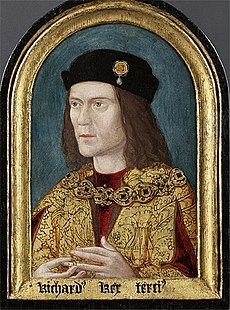An update on an earlier post about an English appellate court decision on the right of Christian employees to decline to work on Sundays. The decision was released to the public last week, and it turns out that initial press reports were a bit misleading.
The case involved Ms. Celestina Mba, a caregiver in a children’s home who wished to abstain from work on Sundays for religious reasons. When her employer told her she would have to work Sundays, Ms. Mba sued for religious discrimination. A lower court held for the employer and, last month, an appellate court affirmed.
Under English law, employers can require Christian employees to work Sundays if there is a legitimate need and the work requirement is proportionate to that need. Press reports, particularly this one in the Telegraph, made it seem like the appellate court had ignored that balancing test and held categorically that Sunday observance is not a core Christian belief and that Christians could be required to work.
As it turns out, the appellate court did discuss the balancing test. The facts of the case were these. The center had accommodated Ms. Mba for two years, but had ultimately determined that allowing her to stay home Sundays put too great a strain on other staff and threatened to disadvantage the children. These were surely legitimate business needs. And the center had only required Ms. Mba to work some Sundays — roughly two out of three. This seemed a proportionate response to that need.
So where did the language about Sunday observance not being a core Christian belief come in? The lower court had reasoned that, because many Christians do not feel an obligation to abstain from Sunday work, abstention could not be considered a core Christian belief. The appellate court criticized the lower court’s language on this point, but basically agreed with the lower court’s reasoning. In determining whether a work requirement were proportionate to a legitimate business need, the appellate court explained, one had to consider what percentage of a faith community the requirement would affect. If the requirement would affect a large segment of the community, that would suggest that the requirement were disproportionate. If, by contrast, the requirement would affect only a small percentage, that would suggest the opposite. Here, the appellate court reasoned, in requiring Sunday work, the center could take into account the fact that many Christians would have no objection at all to working Sundays.
This is all a bit complicated, the way legal opinions often are. Frank Cranmer at the Law and Religion UK blog has a good description of the opinion, if you’re interested in more details. The bottom line is that the appellate court’s decision was narrower and more subtle than the Telegraph’s report conveyed.
Why did the Telegraph get it wrong? The appellate court’s judgment was announced on December 13, but the opinion was not released to the public until January 10. The Telegraph reported the story at the end of December, before the opinion was available. Apparently the reporter relied on lawyers’ accounts of the case.
Like this:
Like Loading...
 monarch, Charles I, that emphasizes the religious history of the period: Charles I & the People of England, by David Cressey will be released by Oxford University Press later this month. The publisher’s description follows.
monarch, Charles I, that emphasizes the religious history of the period: Charles I & the People of England, by David Cressey will be released by Oxford University Press later this month. The publisher’s description follows.

 religious history of the English-speaking world, providing the context for liberal Lockean ideas of government that influenced the American Constitution a century later. I’ve always had the impression that the Revolution was essentially a Protestant rebellion against the last of the Stuart Monarchs, James II, who seemed poised to restore Catholicism in England. A new book by Northwestern historian Scott Sowerby,
religious history of the English-speaking world, providing the context for liberal Lockean ideas of government that influenced the American Constitution a century later. I’ve always had the impression that the Revolution was essentially a Protestant rebellion against the last of the Stuart Monarchs, James II, who seemed poised to restore Catholicism in England. A new book by Northwestern historian Scott Sowerby,  You thought there couldn’t be a law and religion angle to today’s news–fascinating for us history nerds–that archaeologists have discovered the mortal remains of Richard III
You thought there couldn’t be a law and religion angle to today’s news–fascinating for us history nerds–that archaeologists have discovered the mortal remains of Richard III 